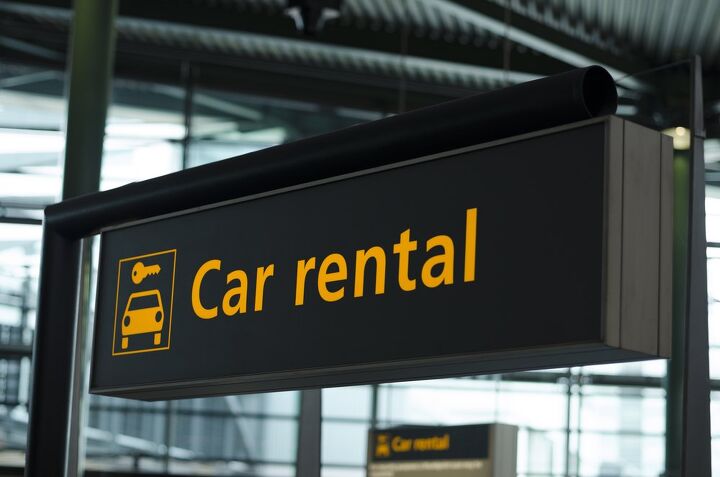Hertz Cancels New Car Orders for 2020

With Hertz concerned with avoiding bankruptcy as the coronavirus pandemic eliminates vacation plans en masse, the company has decided to cancel 90 percent of the new cars it would have purchased this year to refresh its fleet. Minimizing costs for 2020 will be essential for all rental agencies until demand for their services picks up. It’s also indicative of an industry that doesn’t believe life is going to snap back to normal by the end of the month.
We’ve previously covered how badly the economic ramifications of COVID-19 lockdowns have treated car rental groups, but haven’t said much about how they scoop up a large number of vehicles from manufacturers every year — helping to pad their annual volumes. Hertz held roughly 567,600 vehicles in its U.S. fleet and 204,000 in its international unit in 2019. Under normal circumstances, those cars would be rotated out in favor new models after spending a little over a year servicing customers. But Hertz will only need 10 percent of that number this annum, with the distinct possibility of other rental agencies taking similar action.
That doesn’t bode well for manufacturers hoping for a swift rebound once social distancing mandates ease (or are simply ignored by citizens tired of waiting). However, it sounds a necessary response to ensure Hertz actually makes it to 2021, which is anything but a certainty at this point. According to Automotive News, the business’ concerns were front and center in its latest financial discussions:
Chief Executive Officer Kathy Marinello revealed the cost-cutting move in a 20-minute conference call Tuesday, one day after the company reported a larger-than-expected first-quarter net loss and said it may have difficulty continuing as a going concern. That signaled the company’s management doesn’t expecting a quick rebound in demand for rental cars over the next 12 months.
“The coronavirus created a major disruption as the global travel market and the used-car market effectively shut down,” Marinello said. “We have to be pragmatic about the timing of an economic rebound including a second wave of the virus in the fall. So we are focused on safeguarding liquidity.”
Hertz’s inability to replenish an aging fleet that won’t see much use anyway will disproportionally impact Detroit automakers, as they’re the models most prevalent in its existing lineup. Hyundai, Kia, Toyota, and Nissan will also take a hit. The rental firm currently faces a May 22nd deadline to settle up with lenders. While they’ve already extended some leniency by pushing back the date, Hertz will still have to renegotiate payment terms to avoid financial ruin. Unfortunately, it hasn’t issued an update on the matter (and probably won’t until there’s agreement in place or the deadline arrives).
[Image: IJzendoorn/Shutterstock]

A staunch consumer advocate tracking industry trends and regulation. Before joining TTAC, Matt spent a decade working for marketing and research firms based in NYC. Clients included several of the world’s largest automakers, global tire brands, and aftermarket part suppliers. Dissatisfied with the corporate world and resentful of having to wear suits everyday, he pivoted to writing about cars. Since then, that man has become an ardent supporter of the right-to-repair movement, been interviewed on the auto industry by national radio broadcasts, driven more rental cars than anyone ever should, participated in amateur rallying events, and received the requisite minimum training as sanctioned by the SCCA. Handy with a wrench, Matt grew up surrounded by Detroit auto workers and managed to get a pizza delivery job before he was legally eligible. He later found himself driving box trucks through Manhattan, guaranteeing future sympathy for actual truckers. He continues to conduct research pertaining to the automotive sector as an independent contractor and has since moved back to his native Michigan, closer to where the cars are born. A contrarian, Matt claims to prefer understeer — stating that front and all-wheel drive vehicles cater best to his driving style.
More by Matt Posky
Latest Car Reviews
Read moreLatest Product Reviews
Read moreRecent Comments
- Kjhkjlhkjhkljh kljhjkhjklhkjh [h3]Wake me up when it is a 1989 635Csi with a M88/3[/h3]
- BrandX "I can charge using the 240V outlets, sure, but it’s slow."No it's not. That's what all home chargers use - 240V.
- Jalop1991 does the odometer represent itself in an analog fashion? Will the numbers roll slowly and stop wherever, or do they just blink to the next number like any old boring modern car?
- MaintenanceCosts E34 535i may be, for my money, the most desirable BMW ever built. (It's either it or the E34 M5.) Skeptical of these mods but they might be worth undoing.
- Arthur Dailey What a load of cow patties from fat cat politicians, swilling at the trough of their rich backers. Business is all for `free markets` when it benefits them. But are very quick to hold their hands out for government tax credits, tax breaks or government contracts. And business executives are unwilling to limit their power over their workers. Business executives are trained to `divide and conquer` by pitting workers against each other for raises or promotions. As for the fat cat politicians what about legislating a living wage, so workers don't have to worry about holding down multiple jobs or begging for raises? And what about actually criminally charging those who hire people who are not legally illegible to work? Remember that it is business interests who regularly lobby for greater immigration. If you are a good and fair employer, your workers will never feel the need to speak to a union. And if you are not a good employer, then hopefully 'you get the union that you deserve'.































Comments
Join the conversation
Bought a 2013 Altima from Hertz in 2014 with 63k miles on it. Compared to everything else I looked at in that price range, it was like a new car. Easiest buying experience I ever had and the car's been the most reliable I've owned in 50 years of driving. This was my second ex-rental and I wouldn't hesitate to buy another.
Hmmm, no one is complaining about their Challenger or Mustang GT rental.